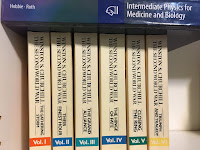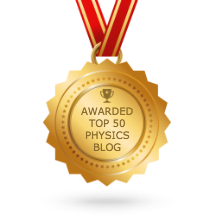 |
| The Second World War, by Winston Churchill. |
One unique feature of Churchill’s history is that he gave it a moral:
Moral of the Work
In War: Resolution
In Defeat: Defiance
In Victory: Magnanimity
In Peace: Goodwill
All books should have a moral, which sums up its key message in just a handful of carefully chosen words, and highlights the crucial lessons readers should learn. A moral is not an abstract, meant to summarize the book. Rather than explaining what the book is about, a moral tells why you should bother reading the book at all.
What would be the moral of the 4th edition of Intermediate Physics for Medicine and Biology? I cannot capture the essence of IPMB as well as Churchill did his history, but I must try. The moral of IPMB should express how physics explains and constrains biology and medicine, how you cannot truly understand biology until you can describe it in the language of mathematics, how so much of what is learned in introductory physics has direct applications to modern medicine, how toy models provide a way to reduce complex biological processes to their fundamental mechanisms, how the goal of expressing phenomena in mathematics is not merely to calculate numbers but to tell a physical story, and how solving homework problems is the most important way (more important that reading the book!) to learn crucial modeling skills. So, with apologies to Sir Winston, I present the moral of Intermediate Physics for Medicine and Biology:
Moral of the Work
In Physics: Physiology
In Math: Medicine
In Models: Comprehension
In Equations: Insight



No comments:
Post a Comment